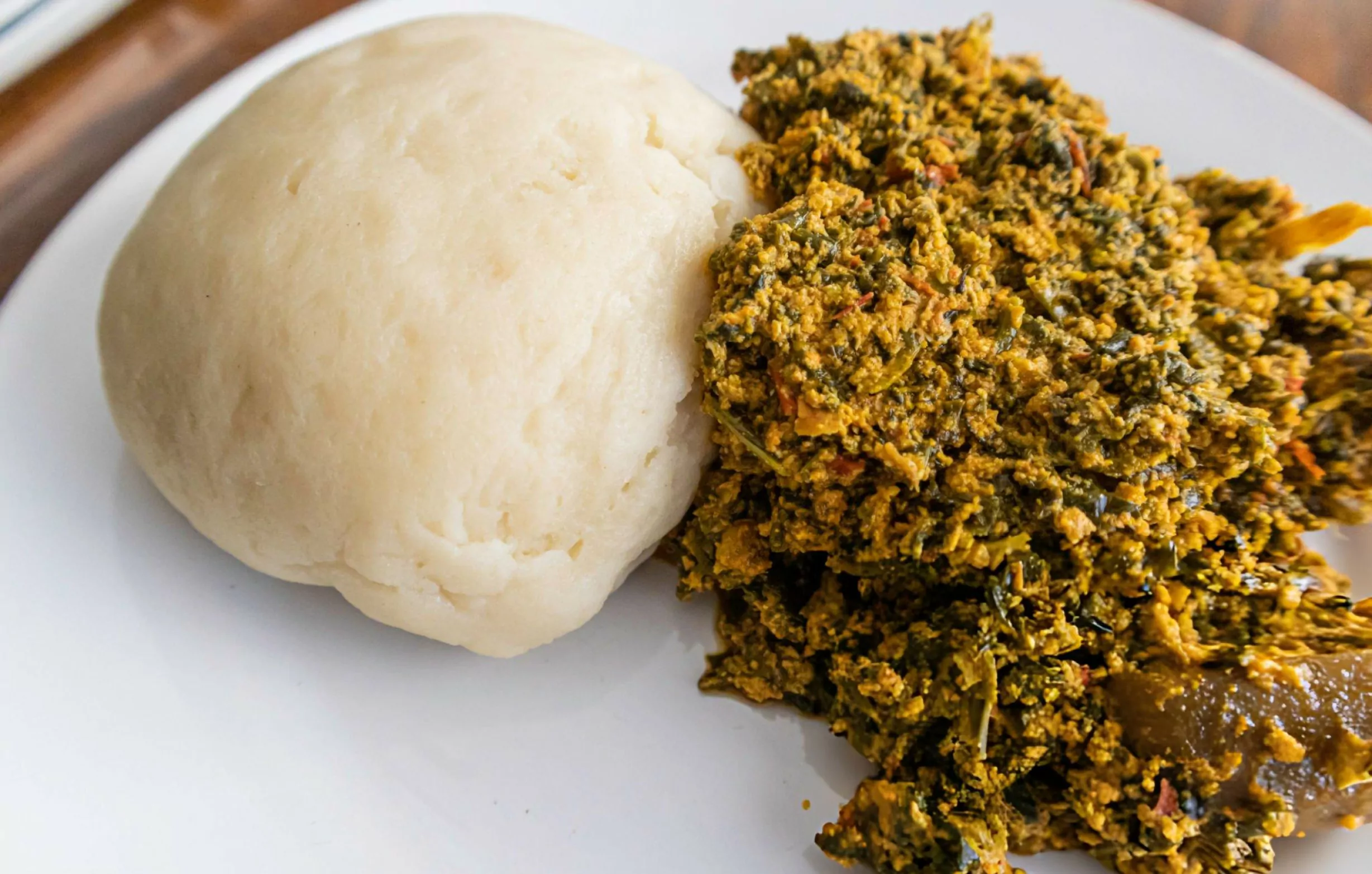
Egusi Stew Recipe
Rich, savory, and deeply satisfying, Egusi Stew brings together nutty ground seeds, bold spices, and tender meat in a thick, aromatic sauce. It’s a vibrant West African favorite that turns everyday ingredients into something truly special.
Print
Pin
Servings: 8
Calories: 500kcal
Ingredients
- 1 cup ground egusi
- 1/2 cup red palm oil see Cook’s Note
- 4 cloves garlic
- 2 plum tomatoes chopped
- 2 small red bell peppers chopped
- 1 small onion chopped
- 1 habanero pepper optional
- 1/2 cup dried herring also known as bonga fish or bony fish
- 2 tablespoons ground dried crayfish or ground dried shrimp
- 1 teaspoon iru fermented locust beans, rinsed
- 1 teaspoon chicken bouillon powder such as Knorr’s
- Kosher salt to taste
- 1 cup chicken broth or water
- 1 pound cooked meat or fish e.g., stewing hen, cut into pieces (see Cook’s Note)
- 1 cup finely chopped collard greens
- 1/2 cup dried uziza leaves rinsed (see Cook’s Note)
- Pounded yam fufu, steamed white rice, and sweet plantains, for serving
Instructions
- Combine the garlic, red bell peppers, tomatoes, onion, and habanero (if using) in a blender or food processor. Blend for about 30 seconds, until a smooth purée forms.
- Prepare the dried herring by splitting it into quarters. Carefully remove any bones—using tweezers if needed—and break the fish into small, bite-sized pieces. Set aside.
- In a large pot set over medium heat, warm the palm oil until it begins to shimmer. Add the blended pepper mixture and stir well to incorporate. Cover the pot and allow the mixture to simmer for around 3 minutes, until the aroma deepens.
- Add the prepared dried fish, ground crayfish or shrimp, iru, bouillon powder, and 1/2 teaspoon kosher salt to the pot. Stir thoroughly to combine the ingredients. Cover again and let the stew simmer gently, stirring now and then, for about 10 minutes or until the mixture has thickened slightly.
- In a small mixing bowl, combine the ground egusi with 1/3 cup of water. Stir until a dense white paste forms.
- Pour the chicken broth into the stew and give it a gentle stir. Using a tablespoon, scoop portions of the egusi paste and place them gently over the surface of the stew. Do not mix at this point. Cover the pot and let the egusi steam and cook undisturbed for about 10 minutes, allowing it to firm into soft clumps.
- Once the egusi has set, gently stir to incorporate the clumps throughout the stew. The stew will take on a thick, lumpy white texture, signaling that the egusi is fully cooked.
- Add the pre-cooked meat or fish to the pot and stir it into the stew. Let it simmer for an additional 5 minutes, just until the stew reduces slightly and the flavors begin to deepen.
- Finally, fold in the chopped collard greens and rinsed uziza leaves. Cover the pot partially and allow the stew to simmer over medium-low heat for about 15 minutes, or until the greens are tender and well-infused with flavor.
- Serve hot with pounded yam, fufu, steamed white rice, and a side of sweet plantains for a complete and satisfying meal.
Nutrition
Calories: 500kcal